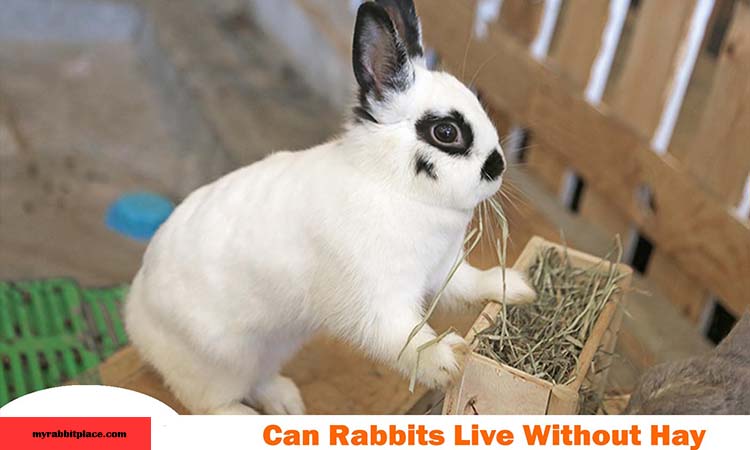Can rabbits survive without hay? A question that rabbit owners often type into the search engine as they look to keep their pets in good health. Hay is such an important part of a rabbit’s daily meal and has a lot of impact on its health.
Why Rabbit Hay is Important, Its Nutritional Importance, Dental Hygiene and Whether Rabbits Can Do Without It.
Another thing we shall tackle here are questions like; what if your rabbit doesn’t have hay? What should you feed your pet to ensure that the diet is balanced?
The significance of hay in a rabbit’s diet.
Rabbit’s diet should include hay. It is high in fiber and it must be incorporated into every rabbit’s diet for digestion purposes so as to prevent gastro-intestinal diseases. At the same time, it enables weight control since it is a low-calorie food but helps dental hygiene by ensuring that rabbits are continuously chewing on it.
The nutritional makeup of hay complements other parts of the rabbit’s diet thus contributing to the general well-being. Additionally, hay also helps prevent the formation of hairballs in rabbits, provides mental stimulation through chewing and supports cecotrophy.
Fresh hay availability on a consistent basis ensures that rabbits remain hydrated and live longer healthier lives; hence it should form their daily feeding routine.
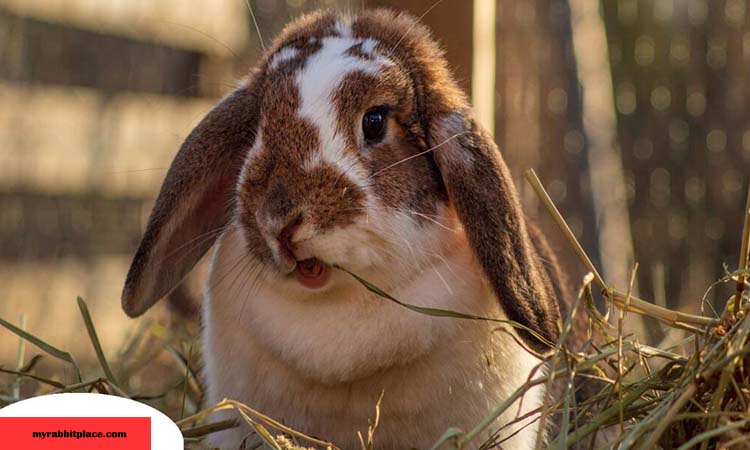
What Happens If Rabbit Doesn’t Have Hay?
The implications of depriving a rabbit of hay in its diet can be very serious. A rabbit’s absence of hay in the diet can cause digestive issues like and gastrointestinal stasis, a condition where the digestion slows down or stops completely, and dental problems because teeth are not worn properly; also rabbits may become obese by consuming high-calorie options that will lead to behavioral problems such as frustration due to lack of ability to satisfy their need for chewing.
Besides, rabbits may experience nutritional deficiencies, which could affect their overall health. This leads to an increased risk of hairballs blocking the gut.
To maintain the best possible state for domestic rabbits, it is important to supply them with fresh hay all the time as part of their specific eating habits along with greens and pellets that should form a balanced diet.
Nutritional Benefits of Hay
Hay has dietary qualities which are important for herbivorous pets like rabbits and guinea pigs. It also contains high levels of fiber that helps to promote healthy digestion, prevent gastrointestinal problems and facilitate the passage of solid waste.
Low calorie and bulky, it is a food source that aids in maintaining weight safely and also contains calcium to phosphorus ratio for bone development. Hay is also essential in supporting dental health through chewing habits hence preventing teeth overgrowth.
Besides, hay enhances mental stimulation improving behavioral health hence reducing hairball formation by facilitating fur movement along the digestive system.
Besides, hay is the main component of an herbivorous diet. It can meet nutritional requirements as well as enhance general good health among these animals.
Check - Can rabbit's eat plums? What are the nutritional benefits and in how much quantity plums are allowed for Bunnies?
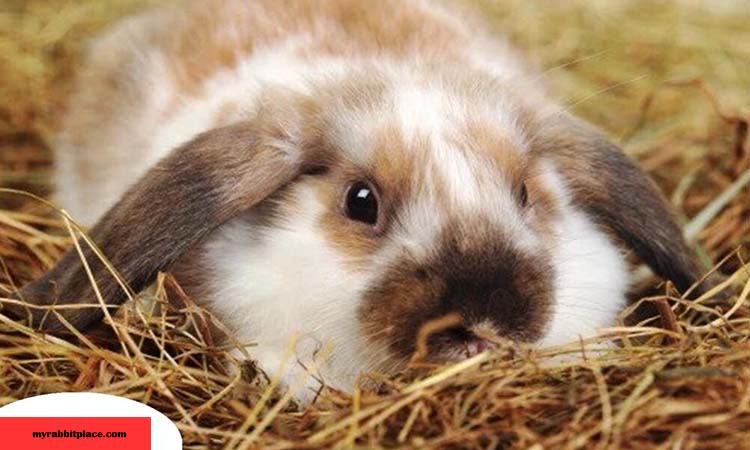
Do Rabbits Need Hay To Survive?
Although resilient creatures, bunnies are not needful of hay for survival although it is indispensable in their diet for maintaining good health. Hay contains essential nutrients, helps with digestion and meets specific dietary needs essential to a rabbit’s well-being.
Wild rabbits chew on grasses and materials akin to hay which help them fulfill their digestive as well as dental requirements. In-home conditions, hay takes the place of the natural grazing of wild rabbits conveniently.
Dental problems, gastrointestinal stasis, obesity and other health issues are what rabbits may face if they do not eat hay. In essence, though rabbits can go without eating it for some time while still flourishing; it is advisable to have a constant supply of fresh hay in their daily menu in order for them to live long lives with joyfully.
Role of Hay in Dental Health
This is the reason why hay is important to rabbits’ dental health because their teeth grow continuously. This means that they will have something to chew with and grind against so as to avoid suffering from malocclusion, overgrowth or misalignment.
This causes saliva to be produced in large amounts, especially during feeding which promotes overall oral health and aids digestion. It also helps to distract the rabbit from boredom which might result in destructive behaviors.
Eating it therefore avoids a number of painful dental problems, such as ulcers occurring on the soft tissues of the mouth or abscesses developing because of inappropriate wear.
Check This - What does Rabbit teeth grinding means and why they do this?
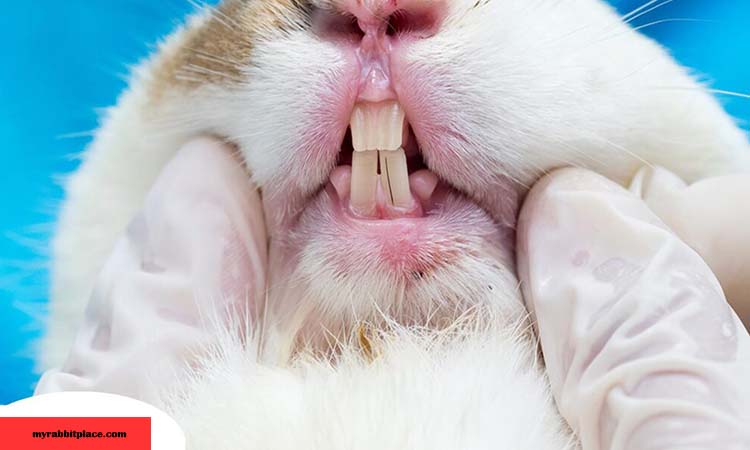
How Long Can a Rabbit Last Without Hay?
Well, all this depends on a number of factors including their age, health or what they feed on but it won’t be a good idea to have them around without hay for long times otherwise. The presence of hay in the diets of rabbits is essential because it has high fiber that facilitates proper digestive system functioning, dental health and well-being in general.
Although there may be variations in actual timespans, a rabbit should ideally have unlimited access to hay. Their digestive system can get disrupted even if they are left for some time without any hay. As responsible owners of rabbits, this means making sure that there is always enough supply of the product throughout the year.
For a complete and nutritious diet; therefore it is recommended to provide a continuous supply of fresh grazing and chewing hay as well as clean water, balanced rabbit pellets and an assortment of vegetables in addition.
Common Misconceptions about Hay in Rabbit Care
Hay is Only for Bedding
One common misunderstanding about hay is that it is mainly used as bedding in a rabbit’s living area. Though this can be used for such purpose, its primary application is as the most important ingredient for the nutrition, health and digestion of rabbits.
Hay is Optional
Also, another myth is that hay does not have to be included in a rabbit’s diet. But actually, it can never be replaced and therefore plays an important role of preventing different diseases such as dental problems and gastrointestinal stasis among others.
Any Hay Will Do
It would also be wrong to assume that any kind of hay can be fed to rabbits. Although there are various types of hay available, it is vital to provide high-quality hay such as timothy, orchard grass or meadow hays so as to ensure proper nutrients in the rabbits’ bodies.
Rabbits Stop Eating Hay Once Mature
Some owners think that once their rabbits grow up they will no longer eat hay. However, feeding them with hay should continue throughout their lives since this helps in maintaining good dental care and supplying necessary nutrients at all ages.
Hay is Only for Overweight Rabbits
Another mistake that people make regarding hay which has high fiber and low calorie content making it appropriate for weight control measures only applicable by overweight bunnies. In addition to overweight ones; all sorts of horses need this food so that they have improved well-being including overall soundness.
A Treat for Hay
It is a fallacy to think of hay as mere treats. Hay is the main source of fiber and therefore, rabbits should always have access to it in order to support their digestion, take care of their teeth and provide mental engagement.
Only Fresh Greens For Rabbits
Although they are healthy, greens do not provide enough nutrients for rabbits when given alone because they do not meet the requirements that hay does in a rabbit’s diet. It is only by chewing on these fibers from specific types of roughage including Timothy grass that one can keep his/her digestive system healthy and prevent various health problems.
Practical Tips for Rabbit Owners: Ensuring a Balanced Diet
Allow for Endless Supply of Fresh Hay
Make available different kinds of good quality hay such as timothy, orchard grass or meadow and ensure that rabbits have it all the time. It is vital for dental health, digestion, and provides overall nutrition.
Reduce Pellets
Although commercial rabbit pellets can be included in their diet they should not be the main source of food. Limiting their intake helps to prevent obesity while providing a higher fiber content.
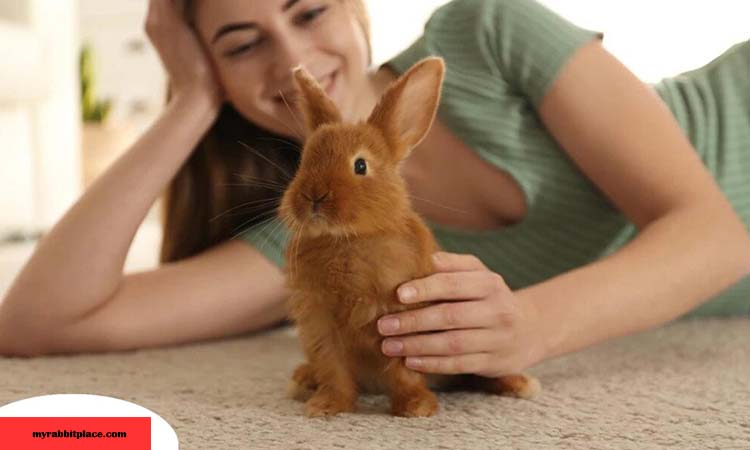
Maintain Fresh Water Supply
Always give clean fresh water. This will keep your rabbit hydrated and aid digestion. Use a drip-feed water bottle or a heavy spill-proof bowl.
Prevent High Calcium Vegetables
To avoid urinary tract complications, restrict vegetables with high calcium levels such as spinach and others rich in it like kale. Focus more on various greens which lead to a well-rounded diet.
Seek Veterinary Consultation
Regular veterinary check-ups are necessary. They are able to advise concerning diets based on age, general health and specific needs of the rabbit.
Monitor Eating Habits
Sudden declines in food consumption could be an indication of a health problem so it is crucial to monitor eating habits for any changes. In case you notice any anomalies it’s time to go get advice from a vet immediately.
Think about Nutritional Supplements
Speak with a veterinarian about the need for nutritional supplements like vitamin drops depending on your rabbit’s diet and overall health. These should support a balanced diet rather than replacing them entirely.
Study Safe Foods
Get informed about safe and unsafe foods for rabbits. Steer clear of toxic plants or those which can damage their digestive system or make them sick.
Start Using Hay Toys
In order to stimulate their mind, hay toys-play should be provided. These toys do not just entertain but also encourage natural chewing instincts in rabbits.
Gradually Change Their Diet
Change your pet’s food gradually by adding small amounts of new foods to avoid getting an upset stomach. Feeding your pet anything different from the usual can result in stomach upsets.
Also Read - Learn about salt licks role in rabbits diet and what is their impact on bunnies health.
What can replace hay for rabbits?
Although it is true that hay is indispensable to rabbits, certain other options can be useful as supplements or treats. Some of these include fresh grass from a yard that has no pesticides, herbs such as parsley and cilantro, romaine lettuce, dried timothy or meadow grasses, compressed hay cubes or pellets made from hay, and ready-made forage mixes.
However, it is important to mention that loose hay, which is an essential component of a rabbit’s dental health, digestion, and well-being, should not be supplanted by these alternatives. Well over half the amount eaten by rabbits should be good quality hay with any adjustments in this regard being done with advice from a veterinary doctor who specializes in their kind of nutrition.
Conclusion
The inquiry as regards “can rabbit live without hay” underscores the crucial import of hay in a bunny’s menu. Hay is not only food but also a dietary necessity that must be included in their diet to ensure their health as well as their digestive system. To ensure that your rabbit is happy and lives long, make sure it has enough hay every day, knowing that there is nothing else that can replace it for any reason in terms of the rabbit’s diet.
